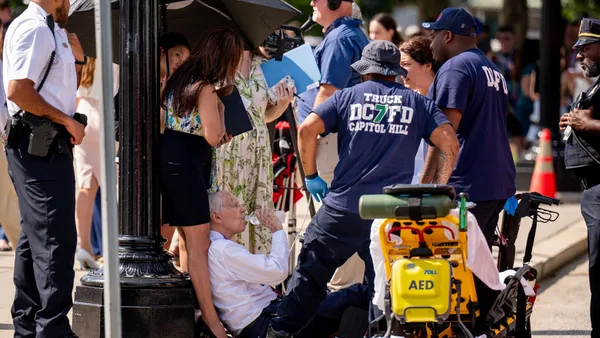Dive Brief:
- Pittsburgh has launched its third Pittsburgh Passport summer program to engage with and retain young professionals by showing college students and recent graduates in the region what it's like to work and live in the city and help them connect with local resources.
- Organizers highlighted increasing racial diversity among program participants. During the inaugural program in 2019, 32% of the 1,500 participants identified themselves as students of color. Last year that figure grew to about 46% of 1,700 participants.
- Pittsburgh Passport is one of many programs that have cropped up across the country in recent years to prevent brain drain, when students and young professionals leave for what they consider more attractive cities. Unlike initiatives in cities such as Tulsa, Oklahoma, and Savannah, Georgia, Pittsburgh's talent retention program does not offer financial incentives.
Dive Insight:
Pittsburgh Passport aims to motivate young professionals to stay in the region based on economic, social and lifestyle opportunities. It helps college students connect with not only potential employers, but also with other students, community members and social opportunities. Social and recreational activities contribute to a person's overall well-being and happiness and can factor into decisions to live in a certain location.
"We recognized we were losing more college students than we should, and it was largely due to the fact that they didn't know what opportunities were here," said Alison Treaster, senior director of talent at the Allegheny Conference on Community Development, the nonprofit behind Pittsburgh Passport. "What we found from focus groups and surveys was that students spent most of their time — unsurprisingly — on campus. We really wanted to help them get out into the city and explore and understand what it would be like to live, work and play here as a professional."
The free programming includes "tech talks," employment networking, art exhibits and outdoor recreational activities. Although last year's program was entirely virtual because of the pandemic, this year will have both in-person and virtual events.
"This program gives interns a chance to meet other people that might not work in their same industry," said Eric Boughner, BNY Mellon Pennsylvania's chairman and global head of treasury services business development, who chairs the Allegheny Conference’s Talent Steering Committee. "It gives them a richer and better college experience, which in my mind matches the vibrancy of the overall Pittsburgh business community."
The program's numerous stakeholders are what set it apart from others, Boughner said. Initially, a few dozen companies came together and decided that instead of competing for individuals who stay in the Pittsburgh area after completing school, they would work together to keep more college talent in the region. A case study by PwC notes that 40,000 students graduate from Pittsburgh-area colleges and universities each year, but half of them relocate to other cities after school.
"The fight for talent, the fight for the best and the brightest, is fierce," Boughner said. "Every city and every region has to figure out what their edge is in that competition. In Pittsburgh, we believe it is the collaboration among the companies, the universities, the foundation, the arts community, the sports teams and everything in Pittsburgh."
Some cities are trying cash incentives or advertising campaigns to attract workers. Last fall, GO Topeka launched an initiative to offer remote workers up to $10,000 to buy a home, or $5,000 for a one-year lease, in the Topeka, Kansas, region. The Northwest Arkansas Council vowed to invest $1 million over six months to attract remote STEAM (science, technology, engineering, arts, math) talent via a pilot program that offered participants a $10,000 stipend and the choice of a bike or a free membership to local cultural facilities. And Las Vegas launched a multimedia campaign to entice remote workers, specifically tech workers from San Francisco and Seattle, to move there.
Other cities — including Colorado Springs, Colorado, and Atlantic City, New Jersey — that were losing young professionals during the pandemic have reached out to Pittsburgh seeking best practices for starting their own retention programs. "That led us to recognize that we had a program that was unique, that was working, that was engaging college students," Treaster said.
Pittsburgh's population has been declining for years. A recent Wall Street Journal article notes that those losses are almost entirely in the number of Black residents while the city's White population has leveled off. The PwC case study points out that Pittsburgh is less diverse than other cities — it's about two-thirds White, according to recent U.S. Census Bureau data — and that makes it difficult for some students with different backgrounds to imagine a future there. Pittsburgh Passport tries to foster connections that reflect a variety of identities, and organizers tout the program's engagement with diverse student populations.
"We see this as a really important pipeline for our employers to access diverse talent and help our workforce regionally become more diverse," Treaster said.












